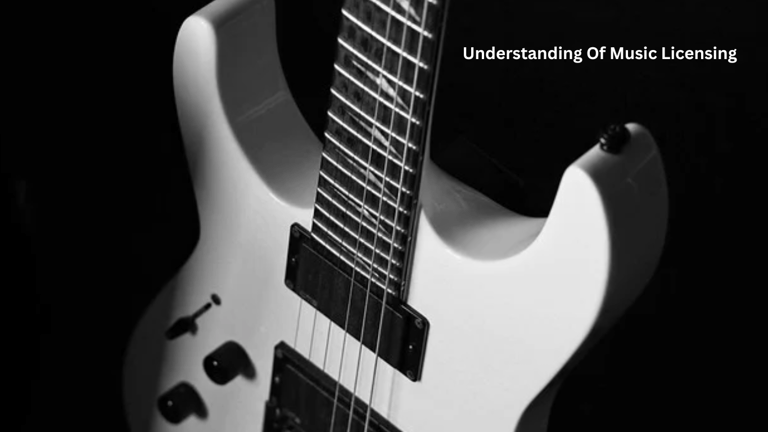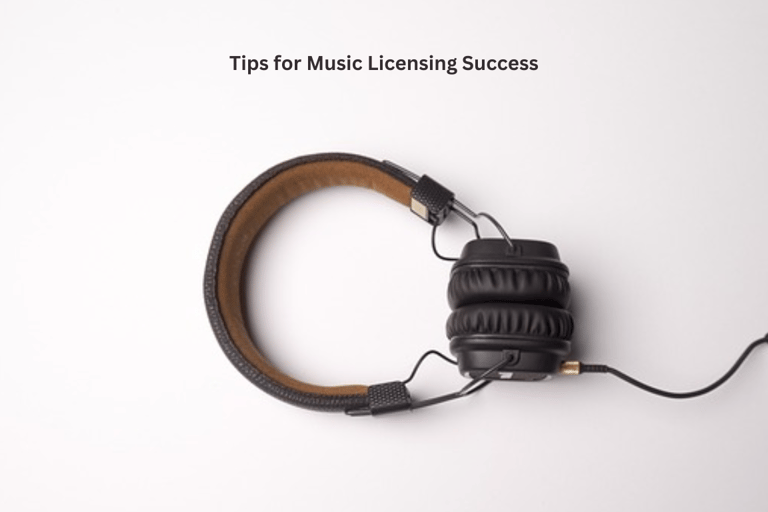Understanding Music Licensing A Guide for Independent Artists
1/24/20256 min read


"Understanding Music Licensing: A Guide for Independent Artists"
It's pretty straightforward when one is an independent artist; licensing in this new music world has gotten elementary. Perhaps that means legal protection could bridge the difference between staying afloat in the industry and going under because, of course, it does not simply boil down to composition to great melodies; all-inclusive helps guide your work in navigating that of being very demystified for decisions related to music licensing.
Music licensing grants legal permission for others to use your music in various forms and media. Whether it's a YouTube video, a TV commercial, a movie soundtrack, or a live performance, licensing ensures you're compensated for your work. It's a way to maintain control over how your music is used while earning revenue.
Music licensing is just an extension of the copyright of the song. When you pen down your composition as a song, you receive an automatic right through copyrighting that right, which goes with you. You'll enjoy rights for reproducing, distributing, performing, and even for its display. Still, due to music licensing, you'll surrender some of these above-granted rights to other persons for temporary usage.
Types of Music Licenses
It's an important point: independent artists should know that various kinds of licenses exist for every type of different use and situation; the most frequently used are the following:
1. Synchronization License
Sync license: This license occurs when your music synchronizes or plays with some visual media; that is, when the movie or television show wants to use the song for its visual elements. For example, when the director wants to use your song for a particular scene, he would need your mechanical license.
2. Mechanical License
This license will automatically apply whenever your work is reproduced and distributed in any format be it on CDs or vinyl records or in digital format, which has to do with streaming or downloads. If somebody else is interested in recording one of your songs, they must get a mechanical license.
3. Performance License
Your music is played live, on the air, or otherwise broadcast. This includes playing on the radio, attending a concert, and eating in a restaurant. A performance license will ensure that you get paid for your work.
4. Master License
This master license is almost like the sync license, except that it expressly permits the use of the original recording of your music. If someone intends to use your actual recording instead of the cover or re-record it, they will need a master's license.
5. Print License
For instance, a print license would be required if the music is to be used in printed forms, such as sheet music or lyric books.
Why Is Music Licensing Important?
It is not just a process but an important source of revenue for an independent artist in music licensing. As the revenue per play of streaming will pay only a fraction of a cent, there are more revenue gains to be had through licensing. Here are a few key reasons why licensing is essential:
Money earned by your music is placed in multiple forms of media.
Exposure: You may be on an even higher-rated television show, film, or advertisement that promotes and sells your music to an even wider audience.
Control: You will have control over what you want regarding how and where your music is used within the licensing agreements, which tends to work well for your brand and values.
Protection: Licensing protects your intellectual property against abuse, and there will be proper compensation.
How to License Your Music
Licensing your music is one of the most complicated things, but it becomes less complex if broken into these steps. Here's a step-by-step guide:
1. Register Your Copyright
You have to give intellectual property and legal protection to which you should not yet distribute a license. All you presented is bringing you to the copyright office in the country where you belong. You register, for example, your US Copyright here at the Copyright office.
2. You join the PRO
Pros include gathering royalties for your music's public performance by ASCAP, BMI, or SESAC in the US or PRS in the UK. Being registered with a PRO means ensuring that all singing of your songs on the radio, TV, and during live performances results in money flowing to you.
3. You sign a music licensing agreement.
You may find companies that have licensed music, and an agency could start pitching your songs in an effort to obtain placements in media. They also have established relationships with filmmakers, advertisers, etc., so your music sells quickly in such scenarios.
4. Licensing Agreement
If you are licensing your music, write an acutely definitive licensing agreement. This will detail the terms and conditions of the use, fees, terms, and restrictions that govern your licensing scheme.
5. List of quality pieces
You should give them the best sound reproduction and professionally mixed music. These multimedia professionals tend to license more where there is sound production.
6. Promote your Music
Upload your music to licensing platforms like Songtradr, AudioJungle, or Pond5. Create a professional website that shows your portfolio and promotes your work on social media.
Problematic Areas When Music Licensing
Though music licensing is lucrative, it has its pitfalls. Here's how to navigate through some of the most common pitfalls:
1. Understand What the Lawyers Say
This includes licenses, copyrights, and other buzzwords that befuddle even license agreements, but here is precisely what you need: the services of a music attorney before agreeing to sign on the dotted line of a bad deal.
2. In an Overpopulated Marketplace
In licensing, you'll just be one of the applicants, but you'll make music like no other, and the quality of the sound should be so excellent that it would be very desirable to listen to.
3. Fair Dealing
As an independent, you will surely be lowballed. In this industry, study the standards and learn to stand your ground well.
4. Rights Protection
Piracy is going to be the biggest threat against you. You will always find yourself in a situation where you must follow what people do with your music and take necessary action when someone infringes on it.
Tips for Music Licensing Success
Connect yourself to the right people in this industry, such as the music supervisors, the filmmakers, the advertisers, etc.,
Track licensing agreements, royalty payments, and contact.
Be open to discovering other genres and styles to exploit your songs' licensing potential.
Invest in sound production and mastering to have the best material to offer your licensors.
Be Informed: The Music Industry is constantly evolving. Stay aware of the latest ideas and trends concerning the licensing of your music.
Frequently Asked Questions
1. What is the difference between a sync license and a master license?
While a sync license will provide you with the rights to have the recording of your composition made for visuals, a master license can be used by the licensor to use the actual recording of your composition. Both of these are usually required for successful media placements.
2. How will I know if my music has been used without permission?
You can follow public performances via a PRO and follow non-licensed uses via Content ID on YouTube.
3. Can I License My Co-Owned Composition?
Yes, you can, but you have to get all the other co-owners or their representatives to agree with you. You will also have to agree on who makes licensing decisions and splits the revenue.
4. Someone is using my music without a license.
You can sue for unauthorized use. A copyright infringement action may yield an award of monetary damages or a permanent injunction.
5. Do I necessarily need an attorney to obtain licenses for buying music?
Needless to say, anyone eager to get licenses never essentially needs the involvement of attorneys; however can be beneficial to involve an attorney on apparently a very confusing licensing arrangement, which will make better sense out of whatever you get via a license; above all also protects you more. Music licensing is a sound system through which an independent artist can finally start making money, getting much-needed publicity for their efforts, and even succeed at what's being created. When someone finally knows the procedure and is watching everything, put together with a sense of when to ask, getting around this music world and building one's own music career becomes manageable.







